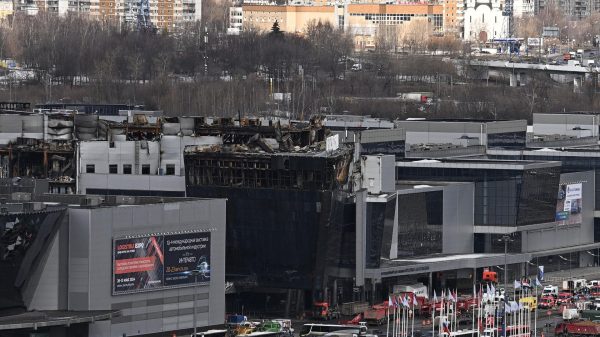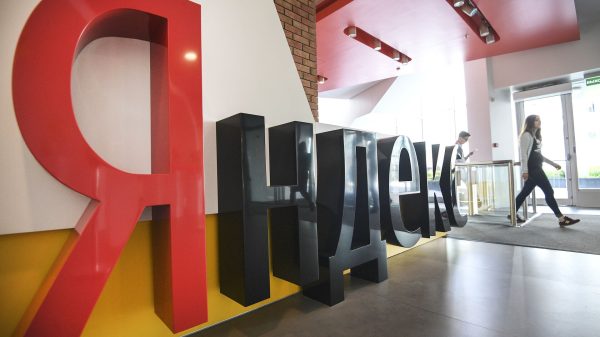 A fan outside the Etihad Stadium in Manchester City. The club are said to have voted against changes to the Premier League's financial rules. Photo: Alex Livesey/Getty Images
A fan outside the Etihad Stadium in Manchester City. The club are said to have voted against changes to the Premier League's financial rules. Photo: Alex Livesey/Getty Images
The Premier League this week narrowly passed its proposal to continue to control the club's finances by 12 votes, although what came next was perhaps more telling when it was about the future of football in this country and Europe.
A threatened legal challenge to the rule change by one unnamed club claims new amendments to related party transactions (APT) are inconsistent with UK competition law. This is disputed by the Premier League. The holdout is believed to be Manchester City and, although it has not been confirmed by either party, City's recent history with the Premier League has been rocky to say the least.
However, City have not will be the only club currently at odds with the Premier League, a vote this week revealed.
APT rules are complex work. They deal with clubs' relationships with commercial partners, with whom they may have a common owner or even a weaker connection. In the case of nation-state owners or fossil fuel dynasties, this is — as the Premier League already knows — not an easy knot to untangle. This involves the trading and loaning of players between clubs owned by multi-club groups or with investors who own other clubs. All this is part of the package of measures that went to the vote.
The rules passed with just 12 votes instead of the usual threshold of 14, lowered by two rare abstentions. The key sticking point, understood as the personal liability directors must bear for their clubs' breaches of financial rules, is less important. More telling is the principle: the threat of legal action and the suggestion that the football governing body — essentially the handshake on which clubs operate — will have to take its chance in the courts.
Friday's vote may have gone through , but it was hardly a ringing endorsement from the Premier League. The old consensus that football was governed by rules that were discussed, changed and approved by those who played it is gradually disintegrating, and what emerges increasingly looks like an invitation to legal action and an erosion of the power of the authorities who govern it.< /p>
Whatever comes out of the reckoning, the problems will be the same. There will be clubs that will seek relaxed or perhaps no financial restrictions on their owners' spending, and there will be others that will seek the opposite. If the former, then this will have huge consequences for the competitiveness of the game.
The game demands regulation and then rejects the penalties that come with it. The answer to the question of who can govern seems to be increasingly divided depending on which organization is willing to give the club what it wants. Be it English football or the European Super League (ESL), which keeps the elite in the top division immune to fluctuations in domestic league form. Or the FIFA Club World Cup, where opponents are selected four years in advance.
Elite teams should put self-interest aside
How is football consensus maintained? The Premier League was finally born in 1992 as a result of a breakdown in consensus between the top clubs and the Football League, fueled in no small part by greed for the television revenue on offer. That consensus, reached 32 years ago, is now being tested.
The Premier League management and chairman manage with the patience of the clubs. It can be a precarious existence, and those responsible could find themselves exposed if the political weather changes — as previous Premier League chairman Gary Hoffman discovered.
It is clear that there are dissatisfied players in the Premier League. He does difficult things and nothing is more difficult than ensuring the profitability and sustainability of City and now Everton and Nottingham Forest. He is under pressure from the government and regulatory prospects. Most would say it's a burden of management, but it has rarely been so hectic.
This is fueled by the wider implications of the European Court of Justice's decision regarding the ESL and its eternal war to break up what they see as UEFA's monopoly. One view is that ESL, mainly Real Madrid and Barcelona, along with their consultants, could now file a legal claim for damages against UEFA — a claim that some Spanish media this week rated at 3. 6 billion euros. Is the dispute already at this stage? As long as the threat exists, it may not exist.
 UEFA player Aleksandar Ceferin criticized for his alliance with Nasser Al-Khelaifi , President of Paris Saint-Germain. Photo: Aurélien Meunier/Getty Images
UEFA player Aleksandar Ceferin criticized for his alliance with Nasser Al-Khelaifi , President of Paris Saint-Germain. Photo: Aurélien Meunier/Getty Images
Neither proposal solves the problems of European football, it simply moves the dispute into another system of the same competing claims, but framed differently. Many are against UEFA President Aleksandar Čeferin, who was elected by the national associations and not by the clubs. They do this primarily because of his alliance with Nasser Al-Khelaifi, president of Paris Saint-Germain and head of the European Club Association. Al-Khelaifi is indeed a powerful man at the helm of the Qatari state's vast wealth of investment in sports, but those trying to replace him are a group of other powerful men with a range of other interests.
< p>Proponents of the model ESL often say they just want what the Premier League has created. A competition run by clubs for clubs, without the intervention of UEFA, which has multiple functions, including as a regulatory body. However, the Premier League also has all these problems balancing competing interests. The same thing that government regulators will face is what UEFA is grappling with in Europe.
As always, the question is how far competing voices are willing to go to fight or admit their point of view. because in order to gain from the game, they may have to give up some of their personal interests. Consensus was what sealed the Premier League's success story, however bittersweet that success may have been for many in European football. Lose him and you lose everything.






















































Свежие комментарии